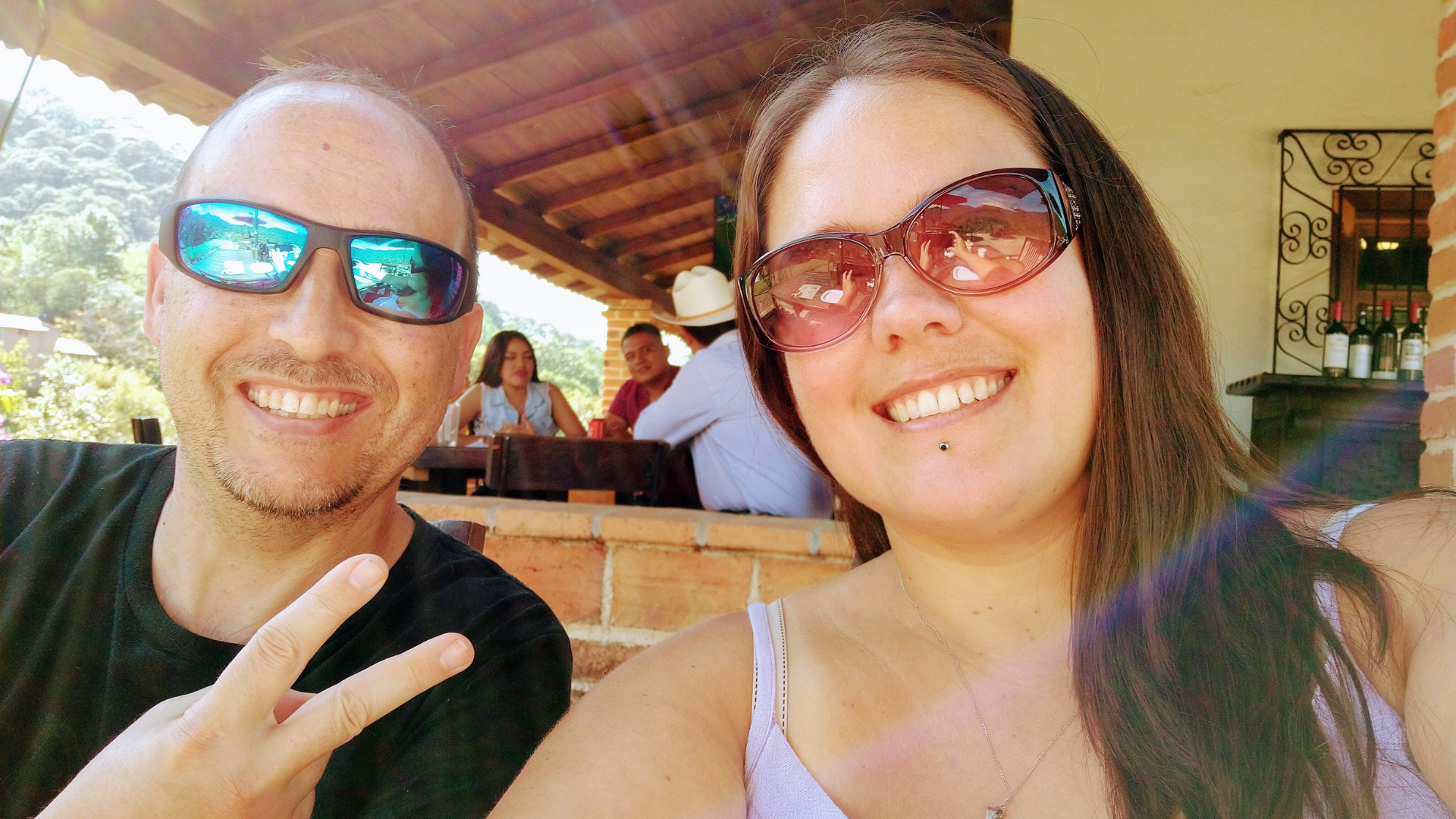Who are you?
My name is Amy Whitney. I am 39 years old. I am originally from Kelowna, British Columbia, Canada, born and raised. I am a teacher and started an online language school called Expat Spanish Lessons, which helps expats, living in or moving to Mexico, to learn the Spanish they will immediately need in their day-to-day lives here in the Spanish-speaking world.
Where, when and why did you move abroad?
We decided to move to Puerto Vallarta back in 2016. Back in my 20s, I started to travel to Latin American countries, and I realized that with each vacation, I wanted to spend more and more time abroad. It got to a point where I asked myself if there was a way to live where I wanted to vacation instead of just having this vacation each year. That thought was really the seed that I planted and led me to various decisions over the next 10 years that gradually aligned us with being in a position to eventually move abroad when the right time came. More about that at the end of the article.
What challenges did you face during the move?
Aside from having to pare down about 15 years of accumulated stuff into a few suitcases and parting ways with my glass art collection and my husband’s 1000+ vinyl record collection, the biggest challenge we faced was bringing our cat Mocha with us.
During our layover in Seattle airport coming from Canada, there was a mix-up during the live animal inspection, and our cat was handed over to another passenger. Luckily, the other passenger recognized us, and we got Mocha back without any major issues.
Upon landing in Puerto Vallarta, the Airbnb we had rented, which was pet-friendly, had an issue with the check-in because we were half an hour late and he refused to pick up the phone. We had to go from hotel to hotel, pleading to let us stay with our cat, even though they weren’t pet-friendly. Eventually, one of them let us stay, and we were able to check into our hotel the next day.
Did you need to obtain a visa, residency permit or work permit? What was the process like?
During my first year in Mexico, my husband and I were here on a traveller visa while awaiting the proceeds from selling my house to show on our bank statements for a period of one year to claim financial solvency. While we had our traveller visa, this meant we were unable to work in Mexico, and any income received during that time was claimed on my Canadian taxes.
Once we obtained temporary residency, we applied for a work permit which allowed us to work online from home. Due to the fact that I didn’t meet the standard requirements to receive a work visa, I needed someone who knew the system inside and out to assist us. It is indispensable, both in terms of time saved and knowledge of loopholes or workarounds to have an immigration facilitator regardless of your Spanish fluency level.
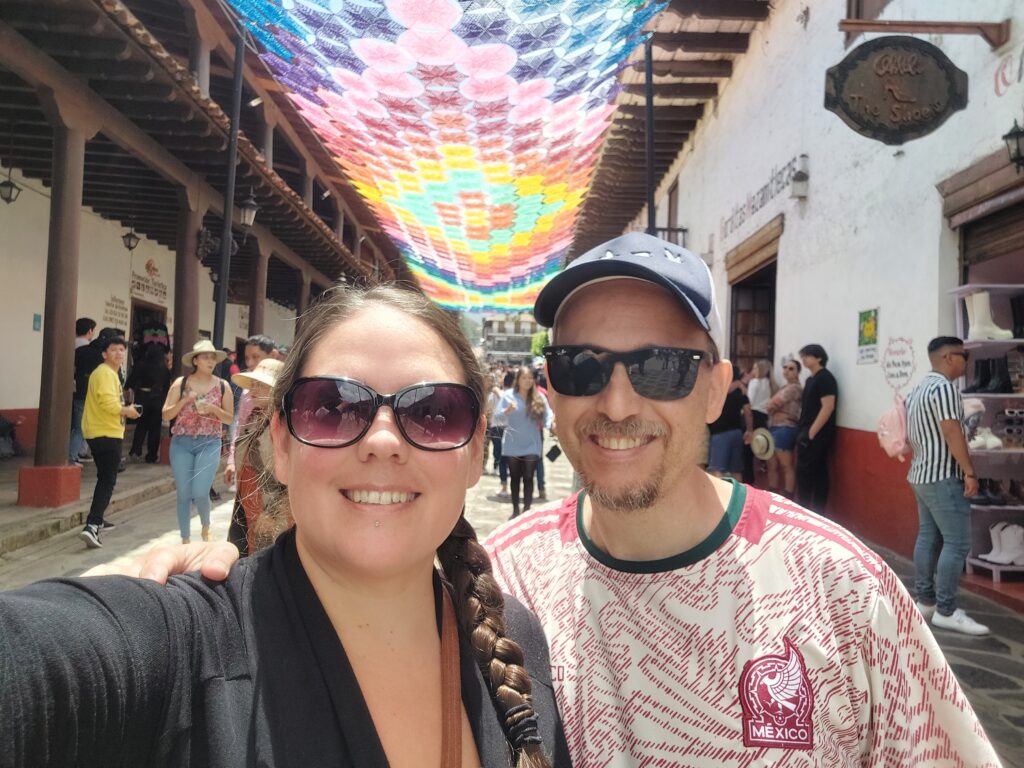
We encountered challenges obtaining our RFC number (personal tax number), which the facilitator assisted with. The tax office required us to finalize our immigration status, while the immigration office insisted on an RFC number. However, the facilitator understood and explained what needed to be done. After four years of being a temporary resident, we applied for permanent residency, which was a straightforward process.
It is important to be prepared for a whole new level of bureaucracy that you can’t even imagine when dealing with the government. Be patient and follow the recommended steps. Eventually you will get through it.
How does the cost of living compare with your previous country?
When we first moved to Mexico, the cost of living was approximately 40% of what it was in Canada. However, over the past seven years, costs here in Mexico have risen significantly, let’s say they are 25-30% higher, maybe even more in Puerto Vallarta due to so many foreigners purchasing property. It has significantly driven up the housing market prices for rentals as well as purchasing property.
Is it easy to open and use an account with a local bank?
I know the process of opening a local bank account very well as I have done this three times with three separate banks. It typically takes a few hours for the initial setup, with a return visit the next day to collect your card.
Initially, I opted for a popular bank called Intercam, known among foreigners for its English-speaking services. However, I discovered that their debit cards didn’t support online purchases, and they didn’t offer credit cards through their bank. Running an online business, I needed a reliable credit card to pay for online subscriptions within Mexico as well as utilities.
Another reason to obtain a credit card was to establish my Mexican credit history. For this reason, I switched to one of the larger national banks which provided me with the steps I needed to follow to request a credit card. After 18 months of getting rejected for a credit card, I learned that the bank had a policy to only issue credit cards to permanent residents, not temporary residents.
This setback led me to switch to yet another bank and restart the process. This bank had a special credit card which required a ‘guarantee’ in the form of a term deposit to guarantee the payment if I defaulted. After 12 months, I had established my credit and was able to apply for a normal credit card. Be aware, credit card rates are through the roof here with an average interest rate of 60-70% and mortgage rates are around 11-15%.
How did you find somewhere to live?
For me, it was crucial to get a first-hand look at the place I’d be calling home for the next year. I wanted to stroll through the neighborhood, gauge how I felt about its safety, and ensure that I didn’t have a noisy neighbor blasting music non-stop or a dog that was barking day and night. Plus, I wanted to ensure the house looked well maintained and the house matched the pictures advertised online. The thought of renting a place without visiting it first was far too risky.
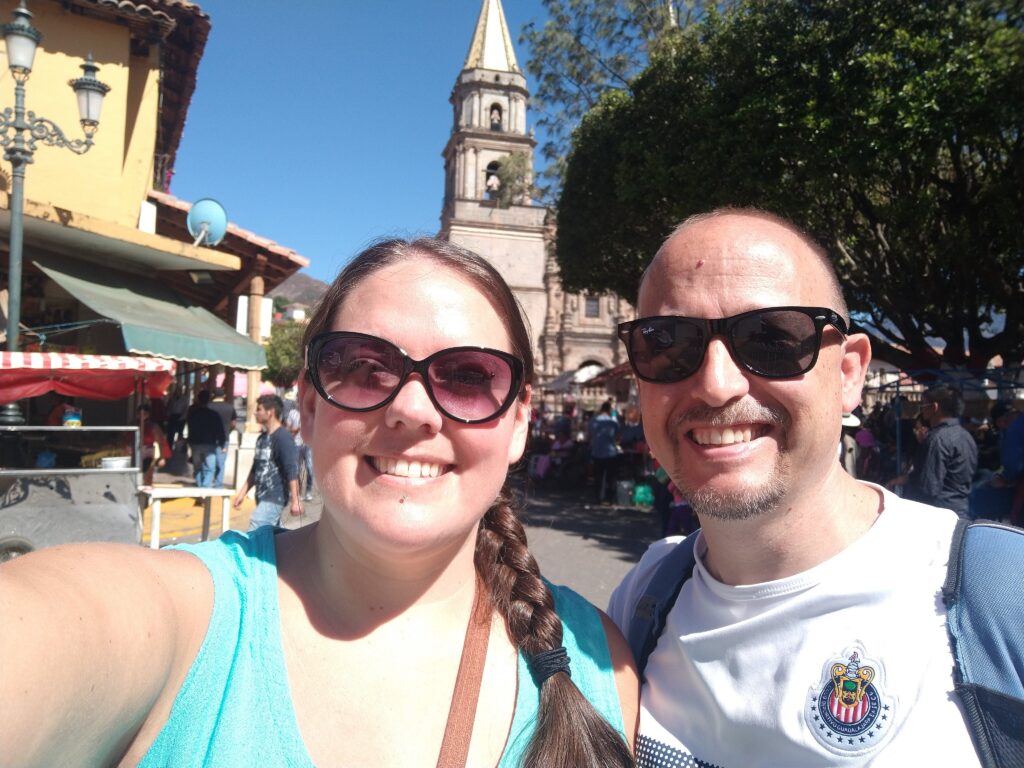
During the first two weeks of our move, we stayed in a pet-friendly Airbnb. In Mexico, there are certain real estate agents who specialize in rental properties. This is the easiest way to ensure you are not caught in a scam and that you have a legitimate contract. Prior to arriving, I had arranged to have a real estate agent (who was recommended to us) to show us various properties within the first few days of arriving.
On the day of the showings, unfortunately, our realtor only showed us unfurnished places closer to our budget or furnished ones that were 2-3 times our budget, all while insisting that due to it almost being peak season there were no other properties available. This was absolutely untrue. I’d recommend doing your research and not trusting one person’s word fully, especially when there is a commission incentive at play.
Aware of my limited budget, which needed to stretch for two years to allow me to get my temporary residency and figure out how to make a living online, I took matters into my own hands by searching for websites with property listings, which of course, were in Spanish. After a few phone calls in Spanish to various real estate agents I found an apartment in a fantastic neighborhood that checked all the boxes: pet-friendly, slightly below budget, and fully furnished.
Are there many other expats in your area?
Puerto Vallarta is a very popular tourist destination for vacationers. We also have a large influx of snowbirds (a person who migrates from the colder northern parts of North America to warmer places in the south southern locales, typically during the winter) that come from November until the end of March. Additionally, there are expats that live here year-round. With that being said, there are quite a few foreigners that are around, but less so during the summer months.
What is your relationship like with the locals?
Most of my interactions with Mexican people occur while shopping or dining at the restaurants I frequent. One aspect I particularly enjoy about patronizing small, local businesses is the personal touch. The owners often remember you and genuinely appreciate your business. They make you feel welcome and take the time to engage in short conversations, fostering a sense of connection and community.
On the topic of friendships, as someone still working beyond the regular 9 to 5, my social time is quite limited, and I prefer to maintain a few quality friendships rather than having a big network of less meaningful relationships. The friendships I do have are with other foreigners like myself, as well as Mexicans.
What do you like about life where you are?
What I enjoy most about living here in Puerto Vallarta is the overall relaxed and laid-back atmosphere. The food is exceptional, with flavorful and fresh produce readily available. The restaurant scene offers a diverse range of options, catering to various tastes. Moreover, the people here are incredibly friendly, adding to the welcoming vibe of this beautiful coastal town.
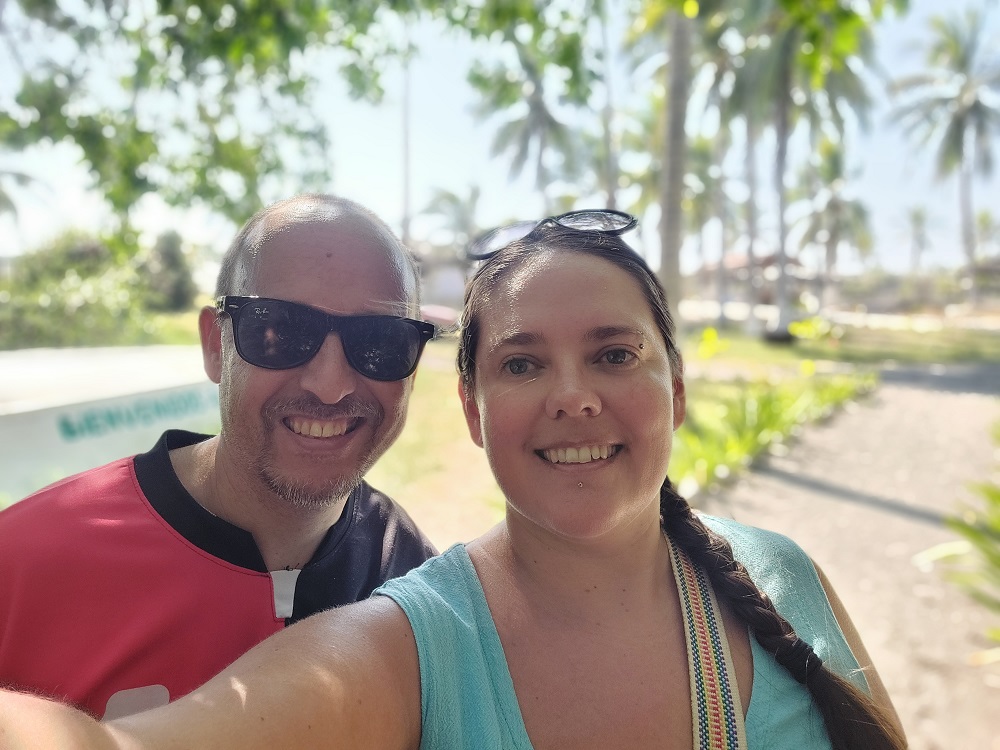
Due to the cost of living being lower, I am also able to afford a house that is spacious and comfortable, to be able to travel on long weekends and go on holidays around Mexico. I also enjoy dining out more frequently than I would be able to if I was still back in Canada.
What do you dislike about your expat life?
Honestly, I don’t have much to complain about when it comes to my expat life. I see no reason to return to Canada in the future or return to my non-expat life; this is the place that truly feels like home to me. However, the one thing that annoys me and continually tests my patience, as well as every other Mexican, is the insane level of bureaucracy that you face as you establish yourself, especially as someone who runs a business.
What is the biggest cultural difference you have experienced between your new country and life back home?
One of the biggest cultural differences, and one that I enjoy the most about Mexicans in particular, is how friendly and open they are when it comes to making new friends. Back in Canada, making friends typically required introductions through mutual acquaintances, organized events, sports, or through colleagues in the workplace.
However, here in Mexico, I’ve noticed that friendships develop much more quickly. After just a few interactions, the opportunity to form a friendship seems to grow quickly. Before you know it, they’re inviting you to hang out or connecting with you as a friend.
Moreover, once you establish a friendship with a Mexican, their generosity and willingness to help are truly remarkable. For instance, a friend of mine found out that my car battery had died. Without hesitation, he made a call to a contact he knew, took an hour out of his day to wait for the battery to arrive, and even installed it into my car himself. Despite my insistence, he refused any form of compensation for his help. This kind of selfless generosity is something I deeply appreciate and admire about Mexican culture.
What advice would you give to anyone following in your footsteps?
As we were preparing to move abroad in our final weeks in Canada, many of our friends expressed envy, saying, “I’m so jealous of you guys, but I could never do it.” Reflecting on this statement, I understand exactly where this statement came from. Prior to moving, I spent months trying to find reasons why it was wrong and thinking that there was some detail I was missing that would tell me that it was a terrible decision and that I shouldn’t follow through. The thing is, that bad feeling of making a ‘terrible decision’ and regretting my move never came. I have never been happier and have not regretted the move even for a minute up to this point.
Yes, selling my house was scary and permanent. Starting my life over without a source of stable income and being unable to work locally seemed insane, but the benefits, the opportunity, and the desire to try it out outweighed the fear and the risk every time. Looking back, I can see that I spent almost a decade aligning my life to be ready and waiting for ‘the right opportunity’ to come so that I could move abroad. Little by little, I had been making small changes or decisions that prepared me to make the leap when the time arrived. In my case, I knew I needed to establish a source of online income. This led me to be interested in learning about digital marketing, trying and failing with a couple of e-commerce ideas, starting up a podcast, learning to build websites, and constantly having my eyes open to potential online businesses ideas. With this experience, I had the confidence that I could find a way to make a living abroad if I had the time to dedicate to it.
Despite being in a far-from-ideal situation financially, I saw the opportunity to take advantage of the rise in the housing market and to clear out all debts and have enough cash to live for 2 years in Mexico (only enough for 4-5 months in Canada). This situation gave me the time I needed to focus on growing our podcast and online course business and create the online income source we needed. Where there is a will, there is a way. It’s not always obvious but you need to keep your eyes open and constantly look for opportunities that align you to your goals.
What are your plans for the future?
Related to teaching Spanish, as someone who massively struggled to learn the language, I am on a mission to help as many expats as possible to learn Spanish in a way that is motivating, feels intuitive, and where they feel confident that they can learn this language. This is the core of what we do at Expat Spanish Lessons.
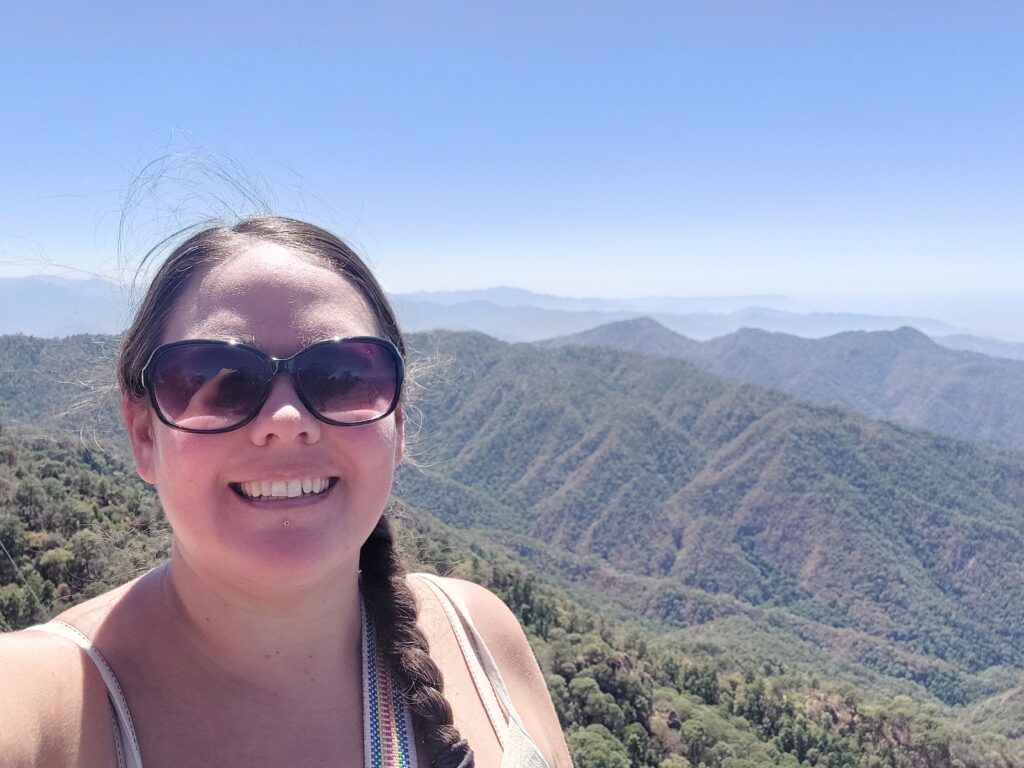
After 14 years I felt I had tried it all and I was getting nowhere, until I made a radical change to approach learning in my own way with a focus on developing my speaking & listening skills. Within less than a year I was speaking at an advanced level. In hindsight, the path to easier learning was so clear to me, and I wanted to create a course based on what I knew expats needed. Seeing the breakthroughs the students are having and the impact it has on their lives and integration into Mexico has been amazing.
On a personal note, my husband and I have a big change coming up. We’re moving from Puerto Vallarta to Guadalajara because the owner of our current house is selling. We see this as an opportunity to explore more of central Mexico during the summer months. Our plan is to spend summers in a higher elevation area to escape the hot and humid weather on the coast, then return to Puerto Vallarta for the enjoyable winter climate.

